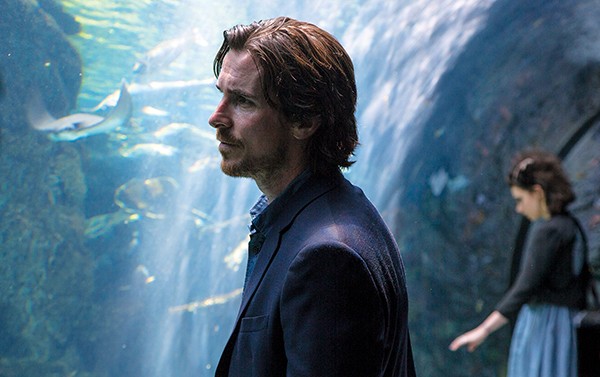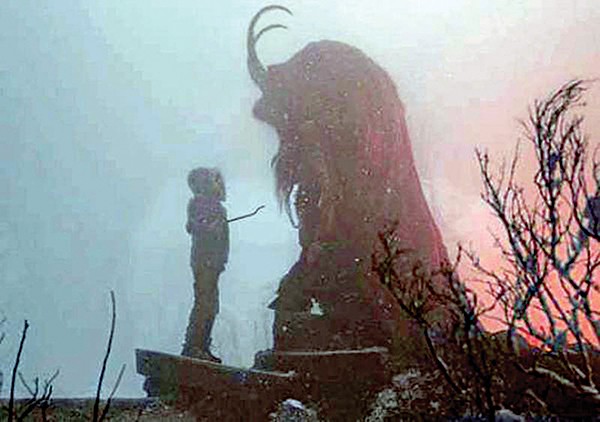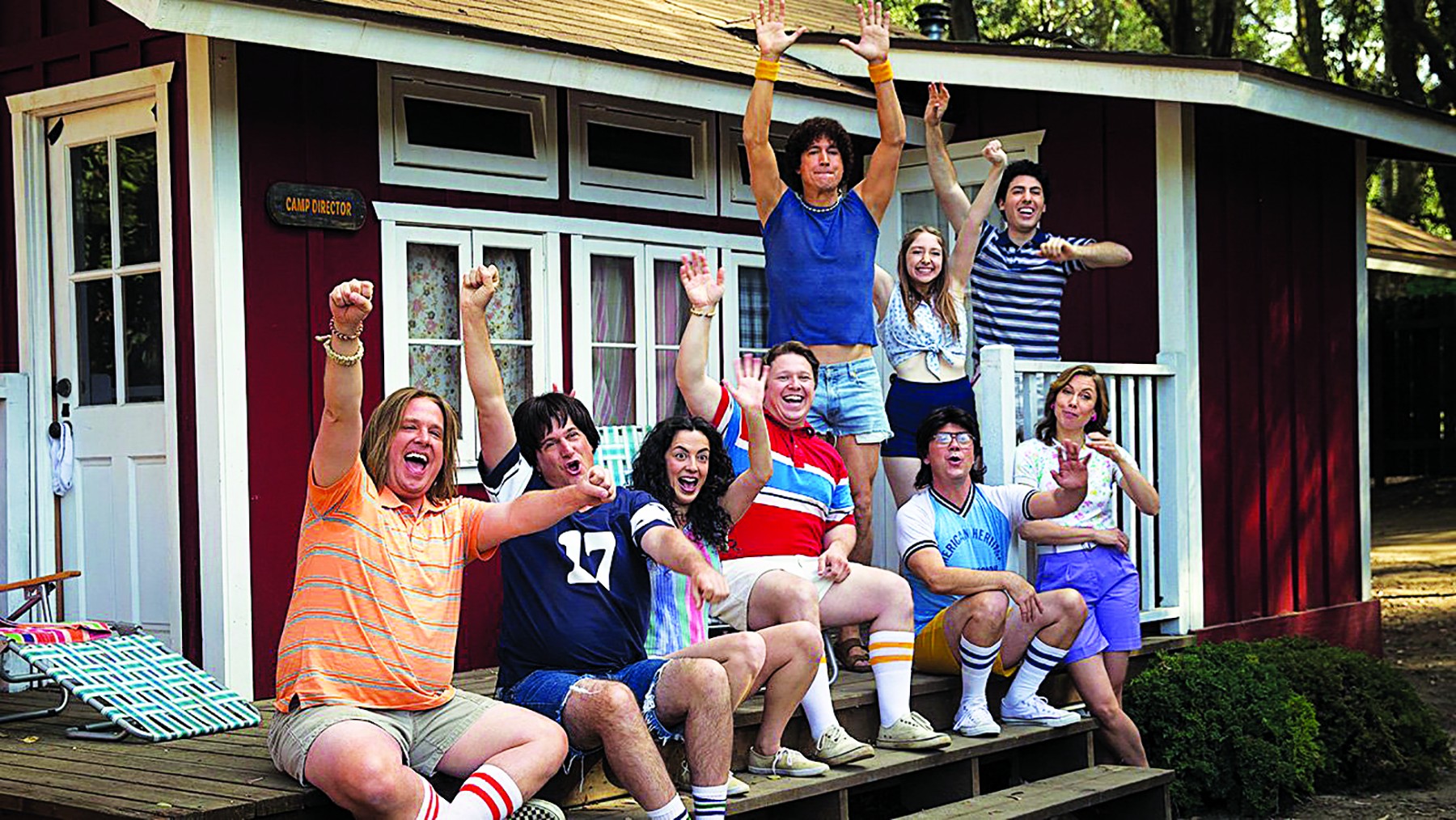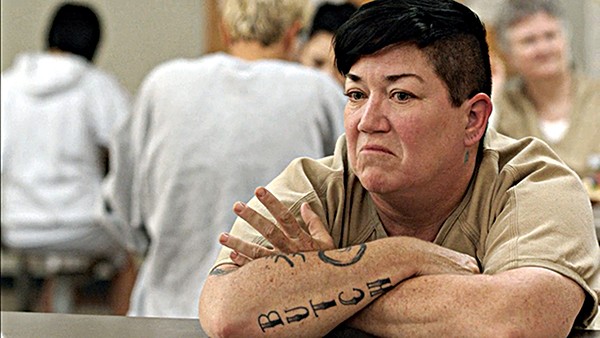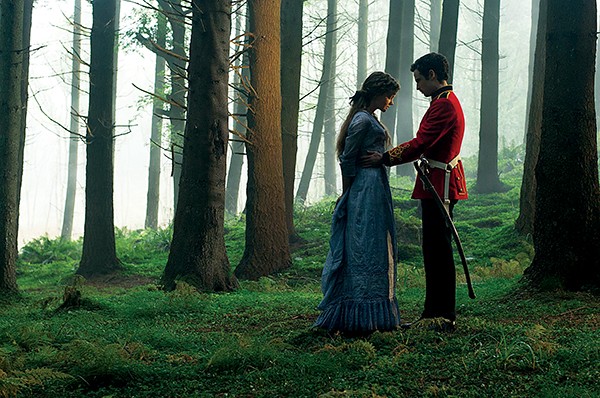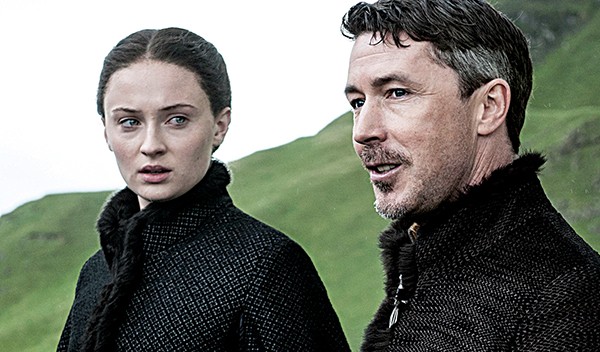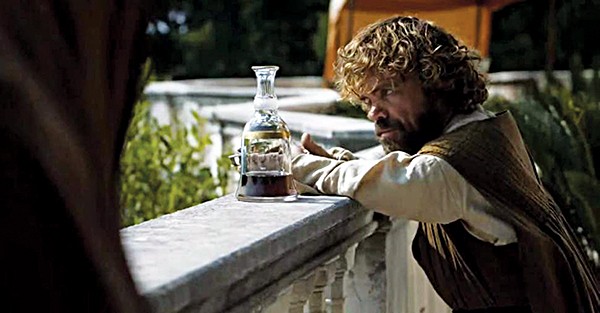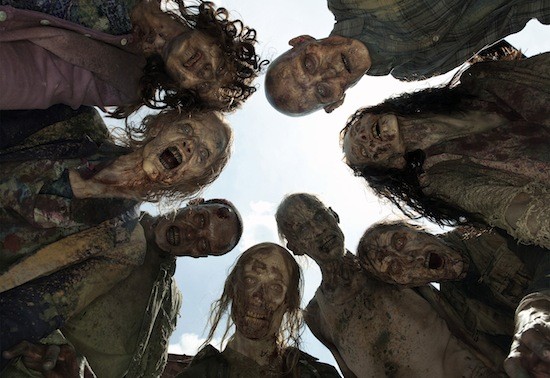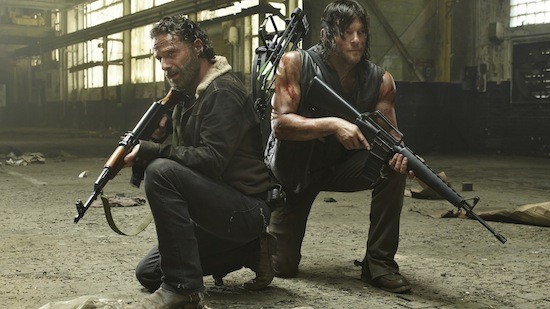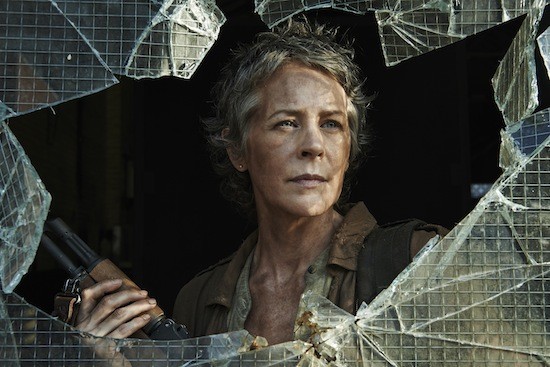Hardcore Henry is a first person sci-fi action movie. Its story is seen from the perspective of a camera in the eyes of an amnesiac cyborg who wakes up in a futuristic lab, which is instantly raided by bad guys. He escapes, to discover the lab is actually a plane. He falls to the highway below, where he is surrounded by more bad guys. Then, off the highway to the car park below, only to encounter more bad guys. This goes on for the entire running time. It is exhausting.
The imagery is playfully influenced by first-person shooter video games. Henry is mute, and the people he encounters speak in the helpful, exposition-friendly manner of non-player characters. They repeat who the bad guy is, what Henry’s current goals should be, and cheekily hand him iPhones with maps. Slowly we notice many of these are the same person, Jimmy (Sharlto Copley), a seemingly immortal character who keeps reappearing after being blown up and set on fire. The bad guy, Akan (Danila Kozlovsky), a well-dressed man with strange eyes and perfect hair who shows up every few scenes to show off his telekinetic powers, deliver one-liners, and kill bystanders. (We also notice we are in Russia, which produces odd touches like a tough guy’s transparent trenchcoat.) The movie follows our hero, or point of view, down hallways with guns firing from the bottom of the frame as he blasts waves of henchmen.
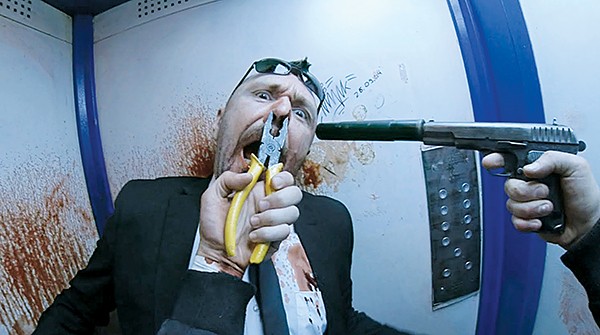
Henry plays a very grown-up game of Who’s Got Your Nose.
Unlike real-life body cam and GoPro footage, there’s never a dull moment. Gaps where dialogue might slow are covered at first by digital camera glitches, then by regular jump cuts. Henry only slows down to punch, hit, kick, or receive information. Most locations are replaced by another in less than two minutes. The movie’s at its best when this is humorous, as when Henry hides in a kiosk and shares an awkward moment with a woman listening to pop, or scales a building to interrupt a couple smoking pot on their couch. A climactic battle is set to Queen. The opening credits, similar to Deadpool‘s recent ones, are slow-motion wounds made to the velvet sounds of the Stranglers’ “Let Me Down Easy.” The contrasting tones were a welcome reprieve from the nonstop sameness.
Most of the soundtrack is loud, modern rock, which goes well with gunfights. The predominant mood, revealed during a shootout in an upscale brothel, is ironic, decadent, aspirational, and hetero. The prostitutes all wear matching black lingerie and blonde wigs; like the incoming S.W.A.T. team, they are supposed to all look alike. The Jimmy of this section has a dragon belly tattoo and snorts cocaine to power himself up for battle. But it’s a little too distant because of the lack of personality in every other face. In a video game, sex and violence with and against the anonymously uniformed are both abstract, because the sexy and murdered aren’t completely lifelike, and performative. Hardcore Henry pales a little because you’re in less control than a video game. It’s always the same speed; it’s always the same tone.

Hold on for your life — Hardcore Henry is a wild ride.
That, combined with the fisheye nature of the lens, make everything a visual soup. When fight scenes are punctuated with over-the-top gore, Henry’s eyes can’t cut to a close-up. What registers instead is movement, every punch and duck. This becomes disorienting. It works better in small doses, as with director Ilya Naishuller’s music videos for his band, Biting Elbows, that inspired the film. And the sense of off-kilter Slavic security footage works better in Russian dashcam videos, where the everyday and the absurdly violent are more balanced and succinct.
There are good touches. Henry’s wife is bland until the plot subverts her role. Copley is fun, a solo Peter Sellers without a straight man. Lady in the Lake, an early point-of-view noir, is referenced. Naishuller’s professed love of Reservoir Dogs is signaled by a Tim Roth cameo. But what this film really needed to borrow from Tarantino is his multiplicity of viewpoints.
